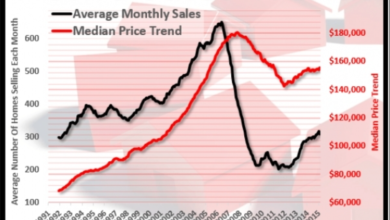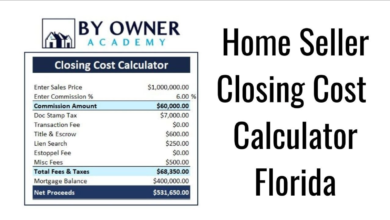Understanding The Quick Sale Home Process
Navigating the real estate market can be a complex and time-consuming endeavor. For those seeking a swift and efficient solution, the quick sale home process offers a compelling option. This guide delves into the intricacies of this process, providing valuable insights and practical advice to help you achieve a successful and stress-free home sale.
Whether you’re facing a financial crunch, relocating on short notice, or simply seeking a hassle-free exit strategy, the quick sale home process can cater to your unique needs. By understanding the timeline, procedures, and strategies involved, you can maximize your chances of selling your home quickly and profitably.
Defining the Quick Sale Home Process
A quick sale home process is a streamlined and efficient way to sell your property in a short amount of time, typically within 30-60 days. This process involves working with a specialized home buyer or company that purchases homes directly from sellers, offering a fast and convenient alternative to traditional home sales.
Key Characteristics and Benefits
The quick sale home process offers several key benefits, including:
- Speed: The process is designed to be fast, allowing you to sell your home quickly and move on with your life.
- Convenience: Quick sale companies handle all aspects of the sale, making it easy and hassle-free for you.
- Certainty: You can be confident that your home will sell within the agreed-upon timeframe, regardless of market conditions.
- No repairs or renovations: Quick sale companies typically purchase homes as-is, eliminating the need for costly repairs or renovations.
Situations Where a Quick Sale Home Process May Be Beneficial
A quick sale home process can be particularly beneficial in the following situations:
- Relocation: If you need to sell your home quickly due to a job relocation or other life event.
- Financial hardship: If you are facing financial difficulties and need to sell your home to generate cash.
- Inherited property: If you have inherited a property that you do not want or cannot afford to keep.
- Time constraints: If you have a limited amount of time to sell your home and need a fast and efficient solution.
Understanding the Timeline and Procedures
The quick sale home process typically follows a specific timeline and involves several key steps. Understanding these steps can help you prepare effectively and navigate the process smoothly.
Preparation
The preparation stage involves gathering necessary documents, such as proof of ownership, mortgage statements, and property disclosures. It also includes decluttering and cleaning your home to enhance its appeal to potential buyers.
Marketing
Marketing your home effectively is crucial to attracting interested buyers. This involves creating a compelling listing, utilizing online platforms, and leveraging the services of a real estate agent to reach a wider audience.
Negotiation
Once you receive offers, you will enter the negotiation phase. This involves carefully considering each offer, negotiating terms, and reaching an agreement that meets your needs.
Closing
The closing stage marks the finalization of the sale. It involves signing legal documents, transferring ownership, and receiving payment. The closing process typically takes place at a title company or escrow office.
Potential Delays and Challenges
While the quick sale home process is designed to be efficient, there are potential delays or challenges that may arise. These include issues with the property title, unexpected repairs, or delays in financing. It is important to be prepared for these challenges and have a contingency plan in place.
Preparing Your Home for a Quick Sale
Preparing your home for a quick sale is crucial to attracting potential buyers and expediting the selling process. Here are some key strategies to consider:
Decluttering and Staging
Decluttering your home involves removing unnecessary items, personal belongings, and clutter. This creates a sense of space and makes your home appear larger and more appealing. Staging involves arranging your furniture and decor in a way that showcases the home’s best features and creates a welcoming ambiance.
Necessary Repairs
Addressing necessary repairs not only enhances the home’s functionality but also boosts its perceived value. Inspect your home thoroughly and make repairs to any noticeable issues, such as leaky faucets, broken appliances, or cosmetic damage.
Curb Appeal
The exterior of your home is the first impression potential buyers have. Enhance your curb appeal by maintaining a neat and well-manicured lawn, trimming hedges, repainting the exterior if needed, and adding inviting touches like outdoor lighting or potted plants.
Marketing Your Home Effectively
Marketing is essential in selling your home quickly. It involves promoting your property to reach potential buyers and generate interest. Effective marketing strategies help you stand out in the competitive real estate market and attract qualified buyers.
Marketing Channels and Strategies
Utilize various marketing channels to reach a wider audience. Consider listing your home on multiple real estate websites, social media platforms, and local newspapers. Engage with potential buyers through virtual tours, open houses, and personalized email campaigns. Partner with real estate agents who have a strong local network and marketing expertise.
Creating Compelling Listing Descriptions
Craft compelling listing descriptions that highlight your home’s unique features and benefits. Use descriptive language, specific details, and persuasive call-to-actions. Showcase your home’s curb appeal, spacious rooms, and desirable amenities. Optimize your listing for search engines by including relevant s and phrases.
High-Quality Photographs
Professional photographs are crucial for capturing the attention of potential buyers. Hire a photographer to take high-quality images that showcase your home’s best features. Use wide-angle shots to create a sense of space and highlight the flow of the rooms.
Include photos of the exterior, interior, and any special features or amenities.
Negotiating the Sale
Negotiating the sale of your home in a quick sale process requires careful preparation and an understanding of the market dynamics. Here are some strategies to help you present your home’s value and negotiate favorable terms:
Know Your Market
Conduct thorough research to determine the fair market value of your home based on recent sales data and comparable properties. This knowledge will give you a strong foundation for negotiations.
Highlight Your Home’s Unique Features
Emphasize the strengths of your home that make it desirable to potential buyers. This could include features such as a desirable location, upgrades, or energy efficiency.
Be Prepared to Compromise
Negotiation often involves compromise on both sides. Be willing to adjust your expectations and consider the buyer’s needs to reach a mutually acceptable agreement.
Seek Professional Advice
If necessary, consider consulting with a real estate agent or attorney to guide you through the negotiation process and ensure your interests are protected.
Closing the Deal
The closing process in a quick sale home process is the final step where the ownership of the property is officially transferred from the seller to the buyer. It typically takes place at a title company or an attorney’s office and involves the signing of legal documents and the exchange of funds.The
documents involved in the closing process include the deed, which transfers ownership of the property, the mortgage note, if applicable, which secures the loan used to purchase the property, and the closing statement, which Artikels the costs and fees associated with the sale.
The timeline for the closing process varies depending on the state and the complexity of the transaction, but it typically takes place within 30-60 days after the offer is accepted.There are several potential contingencies that can affect the closing process, such as the buyer’s ability to obtain financing, the results of the home inspection, or the seller’s ability to provide a clear title to the property.
If any contingencies are not met, the sale may be delayed or even canceled.To ensure a smooth and successful closing, it is important to:
- Review all of the closing documents carefully before signing them.
- Make sure that you have all of the necessary funds available to cover the closing costs.
- Communicate with the other party and their agents throughout the process to avoid any misunderstandings.
Closing Summary

The quick sale home process presents a viable solution for homeowners seeking a swift and convenient exit strategy. By preparing your home effectively, marketing it strategically, negotiating skillfully, and closing the deal efficiently, you can navigate the process seamlessly. Remember, knowledge is power, and the insights provided in this guide will empower you to make informed decisions and achieve a successful outcome.
Helpful Answers
What are the key benefits of a quick sale home process?
The quick sale home process offers several advantages, including a shorter timeline, reduced stress, and the potential for a higher sale price due to increased buyer competition.
How can I prepare my home to sell quickly?
To prepare your home for a quick sale, focus on decluttering, staging, and making necessary repairs. Additionally, enhance your home’s curb appeal by addressing landscaping and exterior maintenance.
What marketing strategies are effective for a quick sale?
Effective marketing for a quick sale involves utilizing multiple channels such as online listings, social media, and open houses. Create compelling listing descriptions and high-quality photographs to showcase your home’s best features.
How can I negotiate a favorable sale price?
To negotiate a favorable sale price, research comparable home sales, be prepared to compromise, and present your home’s value effectively. Consider offering incentives or flexible closing terms to attract buyers.
What are some potential delays or challenges during the quick sale process?
Potential delays or challenges during the quick sale process include issues with the property’s title, appraisal, or financing. Be prepared to address these issues promptly and proactively to avoid setbacks.









